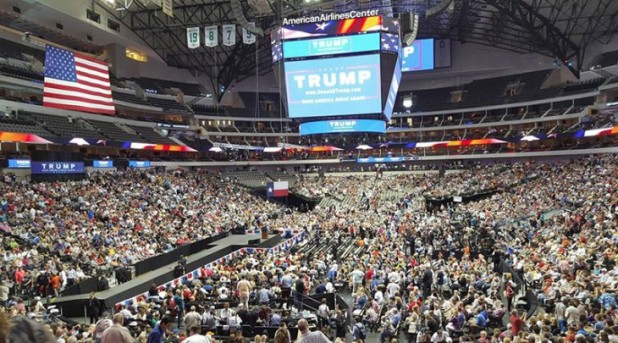The New Observer
April 6, 2016
Well-known US conservative media personality Patrick J. Buchanan has warned that attempts to ignore the Donald Trump message to America will make violent revolution possible.
Writing against the backdrop of the last set of Republican Party primary elections—in which Trump is widely predicted to fail in his attempt to win enough delegates to clinch that party’s nomination—Buchanan said that the establishment dared not ignore the millions of Trump voters.
Buchanan’s article, featured on the US VDare site under the title “What Trump Has Wrought—The Rebirth of Nationalism in America,” says that as “Wisconsinites head for the polls, our Beltway elites are almost giddy. For they foresee a Badger State bashing for Donald Trump, breaking his momentum toward the Republican nomination.”
Buchanan says that should Trump fall short of the delegates needed to win on the first ballot, 1,237, “there is growing certitude that he will be stopped. First by Ted Cruz; then, perhaps, by someone acceptable to the establishment, which always likes to have two of its own in the race.”
But, Buchanan says, this “city of self-delusion should realize there is no going back for America. For, whatever his stumbles of the last two weeks, Trump has helped to unleash the mightiest force of the 21st century: nationalism.”
He points out that the major issue which has generated so much support for Trump is illegal immigration and the border with Mexico.
“Republican candidates who failed to parrot Trump on illegal immigration were among the first casualties. For that is where America is, and that is where the West is,” Buchanan continues.
He then points out that the second issue on which Trump has “connected with the people” is trade.
Republicans, he wrote, are “at last learning that trade deficits do matter, that free trade is not free. The cost comes in dead factories, lost jobs, dying towns and the rising rage of an abandoned Middle America whose country this is and whose wages have stagnated for decades.”
Buchanan points out that “America’s 19th-century meteoric rise” was due to self-sufficiency in manufacturing, and not on foreign imports.
“Production comes before consumption. Who owns the orchard is more essential than who eats the apples. We have exported the economic independence that Hamilton taught was indispensable to our political independence. We have forgotten what made us great.”
A third casualty of “Trumpism,” Buchanan points out, is the “post-Cold War foreign policy consensus among liberal interventionists and neoconservatives.”
Trump has drawn large support by subjecting “US commitments to a cost-benefit analysis, as seen from the standpoint of cold national interest.”
He then lists the disastrous foreign policy interventions of the Washington DC bipartisan establishment, all of which have nothing to do with the US, and which just cost billions of dollars: NATO, Russia, and the South China Sea.
“America First, staying out of other nation’s wars—these are as much the propellants of Trumpism as is the decline of the American working and middle class.”
Buchanan goes on to point out that “Trump’s presence in the race has produced the largest turnout ever in the primaries of either party. He has won the most votes, most delegates, most states. Wisconsin aside, he will likely come to Cleveland in that position.”
He then moves on to his powerful warning:
If, through rules changes, subterfuge, and faithless delegates, party elites swindle him out of the nomination, do they think that the millions who came out to vote for Trump will go home and say: We lost it fair and square?
Do they think they can then go back to open borders, amnesty, a path to citizenship, the Trans-Pacific Partnership, and nation building?
Whatever happens to Trump, the country has spoken. And if the establishment refuses to heed its voice, and returns to the policies the people have repudiated, it should take heed of John F. Kennedy’s warning:
“Those who make peaceful revolution impossible, make violent revolution inevitable.”
 Daily Stormer The Most Censored Publication in History
Daily Stormer The Most Censored Publication in History



